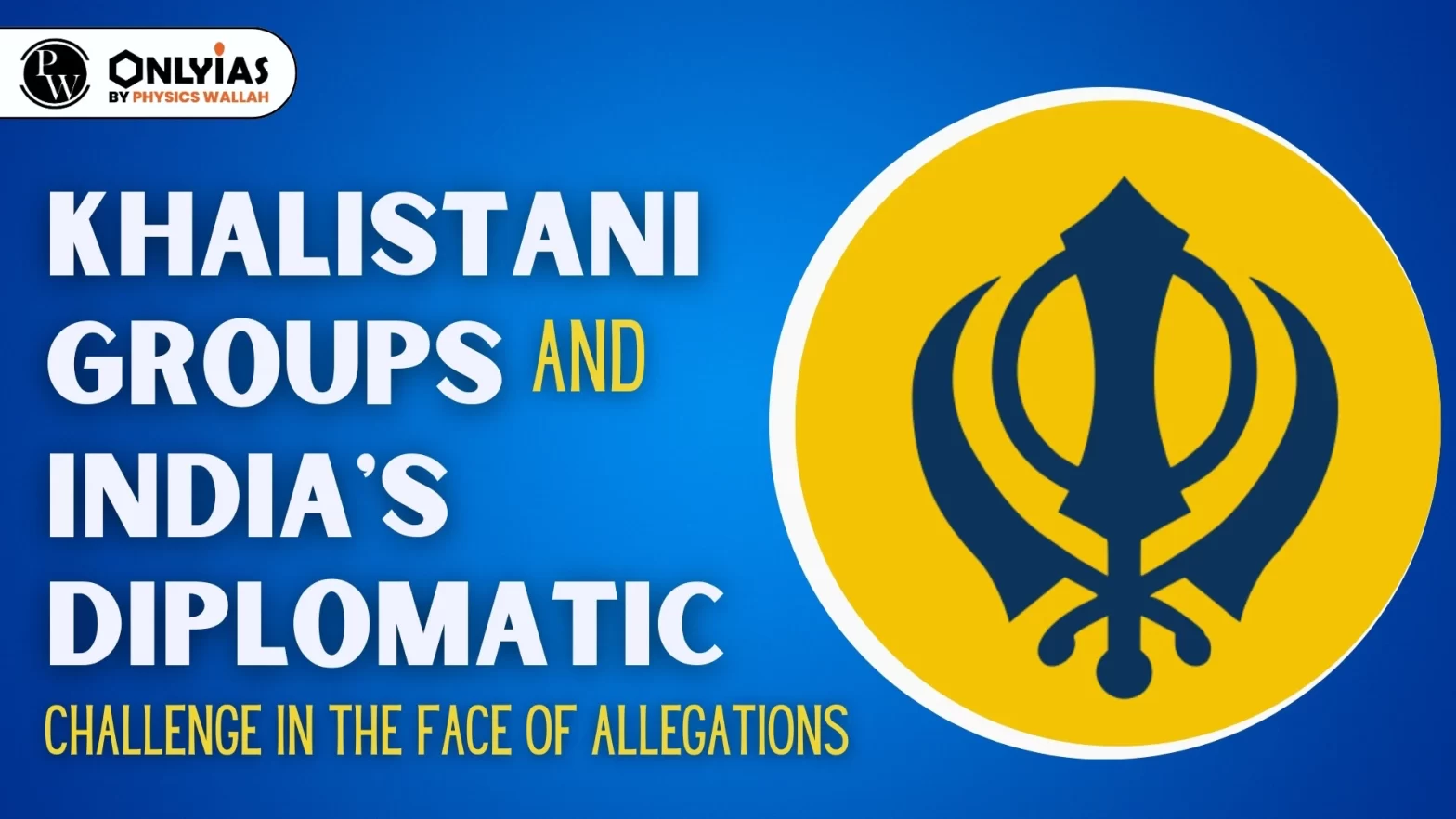Context: This article is based on an Editorial “From Nijjar to Pannun: Indian diplomacy will have to be nimble. Smart one-liners will serve little purpose” Which was published in the Hindu. The differences have been observed in India’s response towards the claims of Canada and the U.S. over a possible Indian conspiracy for the assassination of Canadian separatist-associated with Khalistani groups.
- Recently, the US claims that its agencies foiled a possible Indian conspiracy for the assassination of Gurpatwant Singh Pannun.
| Relevancy for Mains: Khalistani Groups, Security Challenges for India and the steps that India needs to be taken. |
Who are the concerned separatist individuals associated with Khalistani groups?
- Promoters of Khalistan: Hardeep Nijjar, acquired Canadian citizenship, promoted Khalistan, and was declared a terrorist by Indian agencies. Gurpatwant Singh Pannun, a dual citizen of the United States and Canada, is also a great activist for Khalistan and is a proclaimed terrorist by India.
- Promoters of Violence: Both have associations with promoting separatism and violence. Najjar was and Pannun continues to be a member of the Khalistani group — Sikhs for Justice.
- India has declared it to be a terrorist organization.
Also Read: India Canada Relations Deteriorated: Amidst Khalistan Tensions
Differences in Approaches by Canada and the US:
- Canada and the US also adopted entirely different approaches to publicly reveal their respective allegations.
- Evidence: The allegations by Canada were made public while the US did not make evidence public as it would impact the sources and methods of intelligence gathering.
- Engagement: The US had engaged India at the “highest level” on the conspiracy against Pannun while Canada openly maintained that no evidence has been shown to India.
What is the nature of India’s response against Khalistani groups?
- India called the Canadian charge “absurd” as the Canadian allegations were based only on intelligence, while in the US case, India is cooperating and taking the “inputs” seriously because they impacted its security, and “relevant departments” are already examining them.
- During “India-US security cooperation” the US “shared some inputs pertaining to nexus between organized criminals, gun-runners, terrorists and others”.
Why is India concerned about Khalistani groups?
- Khalistani groups have crossed red lines and have even sought to intimidate Indian diplomats.
- Western countries have not taken Indian warnings seriously. In some countries, especially Canada, domestic political considerations have been given primacy over Indian concerns.
Need for India:
- The intervention of Local Authorities: It would be legitimate for India to bring its concerns relating to the activities of Khalistani groups to the attention of the local authorities and expect their intervention when these Indian red lines are crossed.
- A Clear Message: India should respond through calibrated diplomatic steps to make Western countries aware that their laissez-faire attitude to Khalistani separatists and their activities is not acceptable.
Conclusion:
India with its action showed that for India, security is utmost important and India is ready to cooperate with the countries if sharing effective evidence rather than making allegations. Indian diplomacy will have to be quick and active.
| Mains Question: The Indian diaspora has a decisive role to play in the politics and economy of America and European Countries. Comment with examples. (GS Paper 2; UPSC Mains 2020) |
![]() 28 Nov 2023
28 Nov 2023

